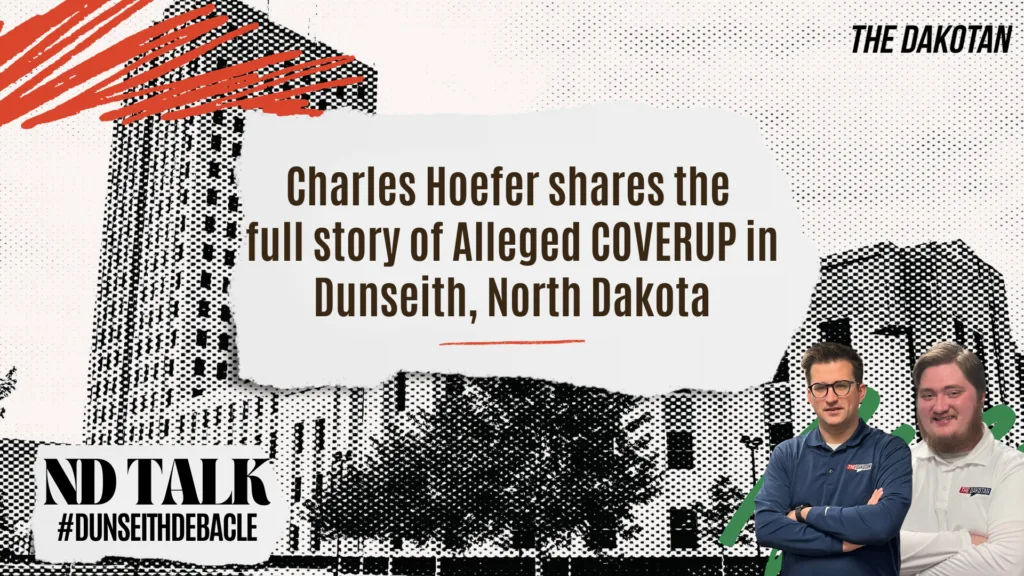

The interview with Charles Hoefer on ND Talk, hosted by Jonathan Starr and Kyler Collom, centers around Hoefer's controversial experience with the Dunseith site, a dilapidated building in North Dakota that he purchased with plans to start an RV manufacturing business. Hoefer, whose family has a long history in the RV industry, recounts how the building’s condition was far worse than expected, but its strong construction initially attracted him. However, once he began renovations, he encountered multiple obstacles, including theft, sabotage, and interference from local and state officials.
Key issues uncovered at the site include the discovery of sensitive military materials tied to previous tenants, such as Benchmark Electronics and Chiptronics, which were involved in aerospace and defense work. Hoefer’s investigation into these activities led to his uncovering of fraudulent practices. One critical figure in the debacle is Bill Tuttle, a manager recommended by local officials, who Hoefer accuses of sabotaging the project, stealing equipment, and misusing company resources. Hoefer's findings drew the attention of state and federal authorities, who, according to him, retaliated by freezing his loans and hindering his efforts to move forward.
Hoefer describes the broader impact of these challenges, not only on his business but on the local community, particularly the Turtle Mountain tribe, who were set to benefit from the project. Despite these setbacks, Hoefer remains committed to his mission of improving the RV industry and restoring integrity to manufacturing standards. The interview paints a broader picture of government corruption, local politics, and the difficulties new businesses face when entangled with legacy issues, making the Dunseith Debacle a story of systemic obstacles beyond just one man’s struggle.
For more information about the Dunseith Debacle, click here.
Check out the full interview here: